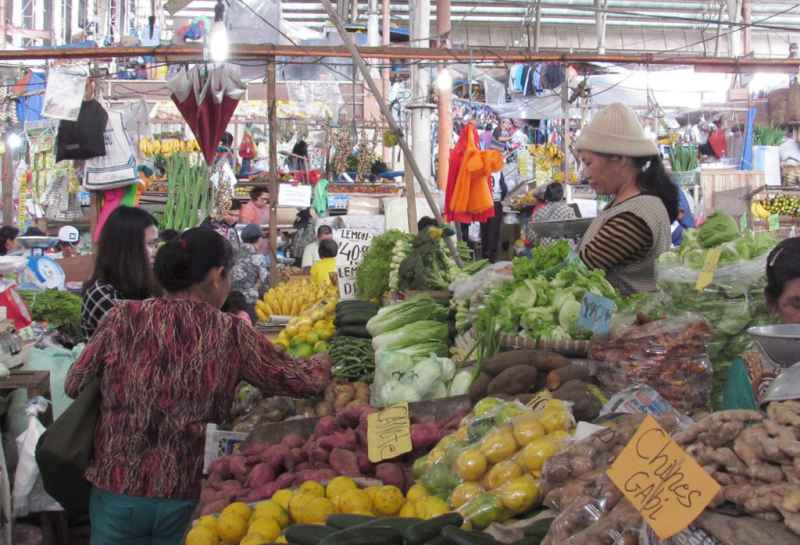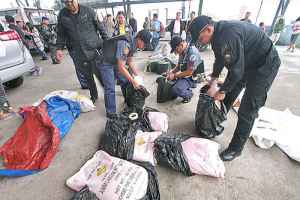Vegetable prices up due to bad roads, ‘fixers’ – Benguet gov

LA TRINIDAD, BENGUET – Benguet Governor Crescencio Pacalso underscored that the rise in vegetable prices in Metro Manila is not at all caused by short supply from the province, where about three-fourths or 75 percent of highland vegetables sold in Metro Manila comes from.
He assured there is no shortage of vegetables from the highland province as a result of the successive monsoon rains that battered the area recently.
Pacalso explained that the rising cost of highland vegetables sold in Metro Manila is more due to the difficulty of transporting the goods down to the central region because of road damages caused by the heavy monsoon rains and the middlemen.
In a press briefing here, the governor said the Provincial Disaster Risk Reduction Management Council (PDRRMC) recorded that as of Sept. 3, Benguet has recorded agricultural damage of P73 million in 11 of its 13 municipalities.
“This is only about five to 10 percent of the total production of Benguet,” Pacalso said.
From January to July this year, Benguet produced 669.97 metric tons of assorted highland vegetables. The province produced an average of 95.7 metric tons a month.
Pacalso explained that the damage in agriculture included high-value crops, rice, corn, and other products grown in Benguet.
The municipality of Bokod recorded the most damage amounting to P12 million; Atok, P8.4 million; Kibungan, P6.39 million; Buguias, P5.8 million; Mankayan, P5.1 million; Kabayan, P4.4 million; Bakun, P1.8 million; Itogon, P1.38 million; Kapangan, P1.04 million; Sablan, P596,518; and Tuba, P560,550.
The governor hopes that the towns of La Trinidad and Tublay did not incur damages in agriculture, which could add to the number.
Pacalso said the cost of damage is not based on the market value of the agricultural commodities, but on farm gate prices, at which the farmers sell their crops from the farms.
Road condition affecting delivery of goods
The governor said that due to the present condition of the roads—road slips, landslides, road cuts, and eroded shoulders—the truckers from the farms have a difficulty transporting the vegetables.
The presence of rocks and stones on the road obliges the drivers to slow down, he noted. There are also one-way road sections, which add to longer travel time.
“If before, the travel time from Buguias to La Trinidad is only three hours, due to the road condition, it is extended from four to five hours,” Pacalso said.
At times, especially during the height of the monsoon rains, there were instances when the truckers take half a day to travel.
The arrival of the vegetables at the provincial Trading Post is a factor being eyed as a reason for the claimed shortage of vegetables.
“When they arrive late at the Trading Post and the buyers have already left, they will have to wait for another day,” before their goods are bought and transported to Metro Manila and other areas of the country.
Benguet in state of calamity
The Provincial Board of Benguet approved on Sept. 3 a resolution declaring the province under a state of calamity.
Pacalso explained that this is primarily due to the road condition and not to damages on agricultural products.
He pointed out that the declaration of a state of calamity will allow the province to access the remaining quick-response fund of 30 percent from the total P56 million calamity fund of the province.
The province’s quick response fund for 2018 is P16 million, but officials intend to leave the P4 million for the last quarter of 2018.
“We can still access the P12 million, which we can use to clear the landslides, especially the dangerous areas by building retaining walls,” he said.
The amount will also be used to give assistance to the farmers, whose plants were damaged by the month-long continuous rains.
Seasonal price increase
The governor also explained that during the rainy season, prices of vegetables normally increases.
However, the high prices of commodities outside Benguet is primarily controlled by traders, who buy the vegetables from the farmers and bring these to Metro Manila. LIZA AGOOT, PNA / ABN
Bontoc agri-fair highlights local products
September 12, 2018
Headlines
COMELEC ORDERS YAP’S PROCLAMATION
June 28, 2025
LA UNION NEW LEADERSHIP
June 28, 2025
TURNOVER CEREMONY
June 28, 2025
P7-M DROGA NASAMSAM, 4 DRUG PUSHER NALAMBAT
June 28, 2025
LA UNION GOV TURNS OVER SEAT TO GRANDFATHER
June 28, 2025





